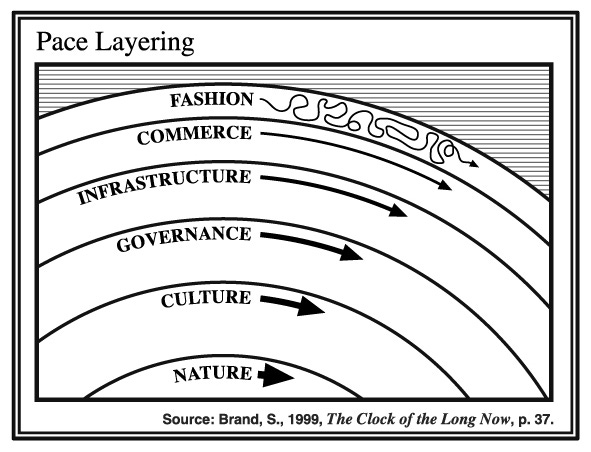Tenday Notes 21 Jan - 30 Jan 2021

Every ten days I share a quick digest of what I've been working on. Here's the latest. More in the series here. Want them in your inbox? Sign up.
First up a quick reminder that I'm speaking at Outlier conference next Friday, 5 February, at 9.10am UTC. You can see that in your timezone here.
Why should you tune in? Well, Miriam Quick and I will be presenting the results of a year's work on our data sonification podcast, Loud Numbers. We'll be talking about what data sonification is, how to do it well, and then playing one of the tracks for the first time to a public audience. The track is a sonification of US inequality data over time, presented as banging old-skool jungle music. I'm really excited about the world finally getting to hear it.
The podcast itself will come out later this year, so if you want to hear it (or me) then get a ticket at whatever price point you're comfortable with.
I got asked a few weeks back by a reader if I could write a little about my note-taking system. So here's an outline of what I'm doing at the moment - with the caveat that this is always a bit of a work-in-progress and I'm constantly tweaking things based on what I'm finding more or less effective.
I believe strongly that notes should be plain text, because it means that I'll be able to read them in 50 years when we're all using 4D ultraholographic apps or whatever nonsense the tech industry has cooked up by then. So all of my notes live in a folder called "Notes" inside my Dropbox, where they're synced across all my devices. They're stored as Markdown files.
On my Windows PC and Mac laptop, I access that folder through a program called Obsidian, which is simple, fast and free (though there are some paid extensions that I don't use). It's also nice to type into - half-way between a word processor and a code editor. I'm using it for this write-up right now. It supports #tags, footnotes and LaTeX, none of which I use, as well as an internal linking system where you can surround a word with [[Double Square Brackets]] to link to another file of that name. I use these links a bit, but definitely not to their full potential. I'm trying to be better at that.
On my iPhone and iPad I currently use 1Writer - which is a solid Markdown editor that syncs nicely with Dropbox. It's not quite as nice to write in as Obsidian, but it supports most of the same features and it's fine for when I just want to get a quick thought down on the go. That's the full extent of the tech stack - two apps, and a folder synced through Dropbox. Nice and simple, and easy to switch something out when I find a better alternative.
Organization-wise, I have three "layers". The first layer is my daily note, which I create every day and have open basically at all times. I title it with the ISO 8601 date - YYYY-MM-DD, which makes it easy to reference and sort. In this file I basically just dump anything that's in my head that I might want to remember later - notes from a Zoom meeting, to-dos, idle thoughts and feelings, mad ideas, stuff to check out later when I have time, that sort of thing.
Part of my daily review each morning is going through the previous day's note, tidying it up a little, adding anything that's missing, and moving anything that needs action into my to-do system, which lives separately in Things 3. I'll then start up a new note for the new day.
Another layer is my Tenday Notes - which you're actually reading right now. These are for public consumption - they go out as my newsletter and on my blog - so by necessity they're properly written and edited. But they're very much derived from my daily notes. I have a recurring to-do each day to write one thing into my Tenday Notes, though sometimes it's none and sometimes it's more. It depends on the day. Over ten days, it averages out into about ten things.
Then the final layer (and to be honest, it barely deserves to be called a layer) is just the rest of the folder where I have a bunch of notes that live independently on different subjects. I have one for each client project, for example, where I track briefs, work, comms, ideas, sketches, next steps, and so on. If there's a topic I'm interested in, it gets a note. If I'm following a tutorial, it gets a note. Sometimes I'll do one for a book I'm reading (though I'm more likely to make notes in the front cover of the book). I have a note for handy code snippets, a note for different paper sizes in pixels, a note that keeps track of the hex codes of colours I need to use a lot, that sort of thing. I always have my notes open, so it's usually faster to find things here than to Google them or to look them up in my emails. These notes frequently get linked from my daily notes.
This system is young. I only started doing the daily notes mid-way through December, and I've only been using Obisidian since last Autumn (before that I used SimpleNote). The daily note thing is, honestly, a little onerous - but I've been getting better at writing the bare minimum there rather than pouring my heart out every day in full sentences - and not worrying too much if I miss a day. And I like that I can look back to remember things that I might otherwise have forgotten.
The rest of the system feels pretty good - lightweight and simple, but powerful and resilient. It allows me to log and retain important information, as well as reflecting on how I'm feeling about stuff. It's solid. I would recommend it as an approach, with - again - the caveat that these kinds of things should constantly be tweaked and upgraded to match what's going on in your life.
This is cool. Tom Whitwell (of 52 things I learned in... fame) has built a "slow movie" player using a cheap e-ink display.
Rather than showing movies at 24 frames per second, they're shown at 24 frames per hour - meaning it takes about a year to play through the 142 minutes of 2001: A Space Odyssey.
In a frame, you'd get a succession of stills from the movie, changing slowly over time. I'm increasingly interested in this idea of slow change over time (more below on that).
I have no idea if this story about "Take on Me" superstars A-ha being critical to the popularity of electric cars in Norway is real or not. But I love it either way.
I had a bit of time without anything I needed to do on Sunday, so I played Pocket Watch - a time-travelling adventure game by Sokpop.
Sokpop is a videogame collective that publishes tiny games. Specifically, a new tiny game every two weeks. You can subscribe to them on Patreon for $3 a month and get them all for free, or you can buy them individually for $3 each. It's a steal, honestly. The games are charming, full of personality, and not too long - which is a mercy when you've got a lot of other demands on your time.
But I want to particularly recommend Pocket Watch, because I love it. It's somewhere between Animal Crossing and Groundhog Day - you're a shipwrecked duck and you have to prevent a volcano erupting. The problem is that there's nowhere near enough time to do so, and the first time you'll fail. But after a little exploration and figuring out what's going on, you'll acquire a Pocket Watch and then the game comes alive...
The game costs just $3, and it'll play on just about any Mac or PC - old or new. It's well worth your time.
N+1 Magazine has a great long-ish read by Britt Young on the Ethiopian government's' "Climate Resilient Green Economy Initiative" which plans to ramp up chicken production and consumption dramatically by 2030. It's a mix of climate action, afrofuturism, neocolonialism, entrepreneur capitalism, and fast food chains. A great read for getting a glimpse into the many complex issues swirling around development right now.
Cal Newport, of Digital Minimalism and Deep Work fame, has written a nice article for the New Yorker talking about the cult of Getting Things Done® and its successes and failures.
It's well-balanced, and ultimately concludes that there's nothing that individuals can do about the endless cascade of tasks that knowledge workers have to deal with in their jobs on a daily basis - it requires a change in management style, which will inevitably, he says, arrive:
Whether or not coronavirus-driven disruption provides the final push we need to move away from our flawed commitment to personal productivity, we can be certain that this transition will eventually happen. Even if we convince ourselves that the psychological toll of overload culture is acceptable collateral damage for a fast-paced modern world, there’s too much latent economic value at stake to keep ignoring the haphazard nature of how we currently work.
The irony of sharing this while detailing my personal note-taking productivity system above is not lost on me ;)
Perpetually half a decade late to the party, I've been discovering the joy of Pinterest. I've avoided it for years, mostly because the site is really slow and it's super annoying when it pops up in Google Image search results.
But I've been using it to try to formalise my "brand" a little with the help of my friend Gabby. To collect together things that visually resonate with me, so that I can use them as inspiration when I'm next deciding what a project should look like. Which reminds me, I really need to read my copy of Austin Kleon's Steal Like an Artist...
Got any top Pinterest tips? Hit reply and tell me! I am new to all of this.
I've been experimenting with a new plotter project, creating "portraits" of glaciers over time. Inspired by the way kids heights get marked on doorframes, I wanted to plot out the extent of glaciers over time - though obviously they're shrinking rather than growing.
I'm very much in the exploration and discovery phase still. Finding good data has been hard. But I did make a few plots of the glaciers on Mt Rainier in Washington State, which I think came out pretty nicely.
More to come on this.
One of my favourite recent discoveries has been the Urban Technology at the University of Michigan newsletter, which this week published a great segment about "Pace Layers" - a concept developed by Stewart Brand (of Whole Earth Catalog fame). It depicts how some parts of society move much faster than others.

Quoting the newsletter quoting Brand:
Fast learns, slow remembers. Fast proposes, slow disposes. Fast is discontinuous, slow is continuous. Fast and small instructs slow and big by accrued innovation and by occasional revolution. Slow and big controls small and fast by constraint and constancy. Fast gets all our attention, slow has all the power.
Which got me thinking about how you could track these slower changes in the culture of a society. The measures we have tend to track fashion and commerce, which - on the scale of cultural change - are noisy as hell.
But what if you had an "index" of measures associated with different cultural futures, in the same way that an index fund averages out the performance of lots of different stocks?
You'd need to do some work in figuring out which measures would be associated with which cultures, and how they should be weighted within the index. And that would obviously be subject to change over time (perhaps even algorithmically). But then you could have a range of different "cultures" being tracked (within different populations, even), and the same measures could appear in multiple cultures.
I feel like this needs an example. So let's say you defined a "bright green" culture, which includes measures like the popularity of vegan diets, electric car sales, share of solar in power generation, and a bunch more related things. With enough metrics, I would expect that you'd see that "bright green" culture rise slowly over time, even if vegan diets, or electric cars, or other metrics on their own rose in and out of fashion. The index as a whole would remain stable.
I would be surprised if this wasn't already a thing happening in think tanks and government policy departments. It seems obvious. But what I don't see is that data (and the methodology behind it, of course) being made public, so people can get more of a sense of the slow change in culture. I think that might be something that could have some value to society.
Thanks to those of you who sent me notes on modular synth after my last set of notes! I'm kicking off a 100-day modular synth project as a result, spending 100 days learning more about how different parts of the system work. Like practicing scales. If you want to follow along, then keep an eye on this Twitter thread.
Lastly, have you heard Arlo Parks' new album, "Collapsed in Sunbeams"? It's very good.

